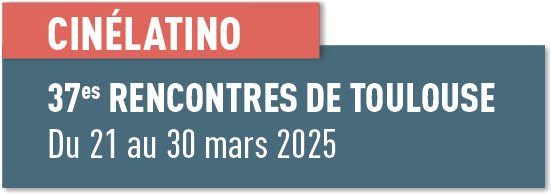Selection:
Director:
Country:
- Brazil
Format:
Type:
Film exhibited in Toulouse:
De Menor (2013), 72’, ficción
Post-production
Cinéma en Construction
Foreseen cast:
. Cláudia Assunção (Eunice)
. Thiago Pinheiro (Cassio)
. Thiago Franco Balieiro (Cauã)
Script writer(s):
Synopsis:
Laundry area. Rossi, 17, passionately kisses Cassio, a friend of his brother Cauê. Bathroom. Rossi is masturbating and is surprised by his mother Eunice. Living room of an apartment. A family gathers around the television. It is very hot, but the windows are closed, because the apartment is only a few meters away from an enormous viaduct, the “Minhocão” that crosses the city from west to east. Eunice is standing in front of the closed window, enjoying the subtle breeze that comes through a crack. Cauã, 20, is alone on the couch and casually moves the fan with his feet. Borges, 50, watches television in his chair. Rossi, 17, enters the room and sits on the floor. When he does that, he drops the fan on the ground, breaking it. Cauã scolds him and goes to the window, opening it with hardly, leaving the deafening noise of Minhocão invade the room. Borges looks at Rossi with disapproval and asks Eunice to increase the TV sound. Eunice doesn't hear him asking, and Borges, angrily, leaves the room. Cauã goes to a nightclub with his friend. Rossi goes to the window. Eunice sits on the couch and stands still.
This is the routine of this staggered family where Eunice and Rossi can't find their place, not even close to each other. To bear this hard everyday, they take refuge in daydreams, each on their own.
Daydreamer is the chronicle of a weekend where Rossi will find, in the street, characters that, like him, are mismatched. The street is configured as the stage of Rossi's sexual and affective initiation. On this journey, Rossi experiences the disaffection and affection and, thereafter, may react to his brother's threats and approaches his mother's of truth.
Visual concept:
The proposal for the direction of the film is built upon two concepts: the road movie and the fable. Road movie because the film is a trajectory of movement.
The fable, the fantastic, the dreamworld, is suggested by Rossi’s characteristics, in search for refuge in reveries, to leave the oppressive everyday life.
The film happens in a very specific space in the city of São Paulo: downtown, it’s human and urban landscape. Daydreamer also define itself by being the chronicles of a space and a time: the nightlife in São Paulo, at Augusta street, Roosevelt square, the old downtown, and sundays and holidays in the closed Minhocão.
Therefore it will be necessary to create a fusion between the documental/naturalist (the film’s environment – downtown and it’s cultural life) and the dreamworld (Rossi’s and Eunice’s revenues). To do that I propose a radically documentary aesthetic, that will fray the boundaries between fiction and documentary. This aesthetic is proposed for the cinematography, by the use of the lighting already in places (mainly in the street scenes) and the use of handheld camera and less noticeable camera movements, for art direction, by using elements found in the downtown universe itself; by using part of the cast with non-professional actors, as a result of a research in the central region; by a dramaturgy that will incorporate improvisation of the actors, and by the editing that can use unconventional cuts to build the narrative. The dream, within that universe, will infiltrate this everyday and documentary aspect of the film.







